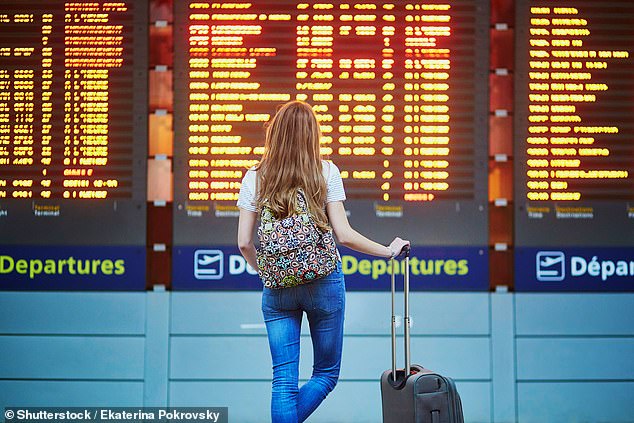Australia’s passport is named as one of the most powerful in the world
The Australian passport ranks sixth in the world for the most powerful passport, despite being the most expensive.
Singapore claimed the top spot as the world’s most powerful passport for 2025 in the Henley Passport Index quarterly report.
The index, created by London-based global citizenship and residency consultancy Henley & Partners, analyzed data from the International Air Transport Association.
Updated monthly, the index ranks 199 different passports and determines the global freedoms of 227 countries and territories around the world.
Holders of Singapore’s red travel document enjoy visa-free access to 195 of 227 destinations, making it the most sought-after passport in the world.
With access to more places than any other passport in the world, the Singaporean passport remains relatively cheap, costing holders just $87.
The $162 Japanese passport came in second place, with access to 193 destinations after neighboring China opened its borders for the first time since the Covid-19 lockdown.
Closely followed by France, Germany, Italy, Spain, Finland and South Korea, all of which ranked third with visa-free access to 192 destinations.
Despite being the most expensive passport in the world, Australia ranks sixth with Greece, offering visa-free access to 189 destinations
Fourth place is occupied by seven countries, including Austria, Denmark, Ireland, Luxembourg, the Netherlands, Norway and Sweden.
The countries are part of the European Union’s border-free Schengen area, which allows 425 million EU citizens access to 191 destinations without the need for a prior visa.
New Zealand came in fifth place, along with Belgium, Portugal, Switzerland and the United Kingdom – with visa-free access to 190 destinations.
Australia is tied with Greece in sixth place, with visa-free access to 189 places.
On January 1, the cost of the Australian passport rose from $398 to $412, making it the most expensive passport in the world.
In contrast, the cost of a passport for Australia’s sixth-largest Greece is less than half: €84.40 (or about AUD$140.50).
Australians with a $412 passport can travel without a visa to countries such as Singapore, Thailand, the Philippines, Malaysia, China, New Zealand, Samoa and Fiji.
In Europe, the passport allows visa-free access to countries such as the Czech Republic, Denmark, France, Greece, Italy, Malta, Portugal, Switzerland and the United Kingdom.
In Africa, the list includes countries such as Botswana, Gambia, Mauritius, South Africa and Tunisia.
While in America, Aussie passport holders can visit Barbados, Brazil, Canada, the Dominican Republic, Jamaica and the US without the need for a prior visa.
Malta, Poland and Canada ranked seventh with access to 188 destinations, while the Czech Republic and Hungary came in eighth with 187 destinations.
The top 10 was completed by the United States and Estonia in ninth place, and Latvia, Lithuania, Slovenia and the United Arab Emirates in tenth.
The United Arab Emirates saw the biggest increase in global mobility in the index, after securing access to a further 72 destinations since 2015.
The increase saw the UAE rise 32 places to 10th, with visa-free access to 185 destinations.
China also recorded a huge increase, rising 34 places from 94th in 2015 to 60th in 2025.

The Henley Passport Index ranked 199 different passports and determined the global freedoms of 227 countries and territories around the world
Syria comes in at 105th with access to only 27 places, while Iraq comes in at 104th with only 31 destinations.
Afghanistan remains anchored at the bottom of the index, with a visa-free entry score of just 26 (down from 28 last year), creating the largest mobility gap in the index’s 19-year history, with Singaporeans able to travel to 169 more destinations visa-free than holders of an Afghan passport.
Christian Kaelin, Chairman of Henley & Partners, said: “The idea of citizenship and its birthright lottery needs a fundamental rethink as temperatures rise and natural disasters become more frequent and severe, displacing communities and making their environments uninhabitable.
“At the same time, political instability and armed conflict in several regions are forcing countless people to flee their homes in search of safety and refuge.”
